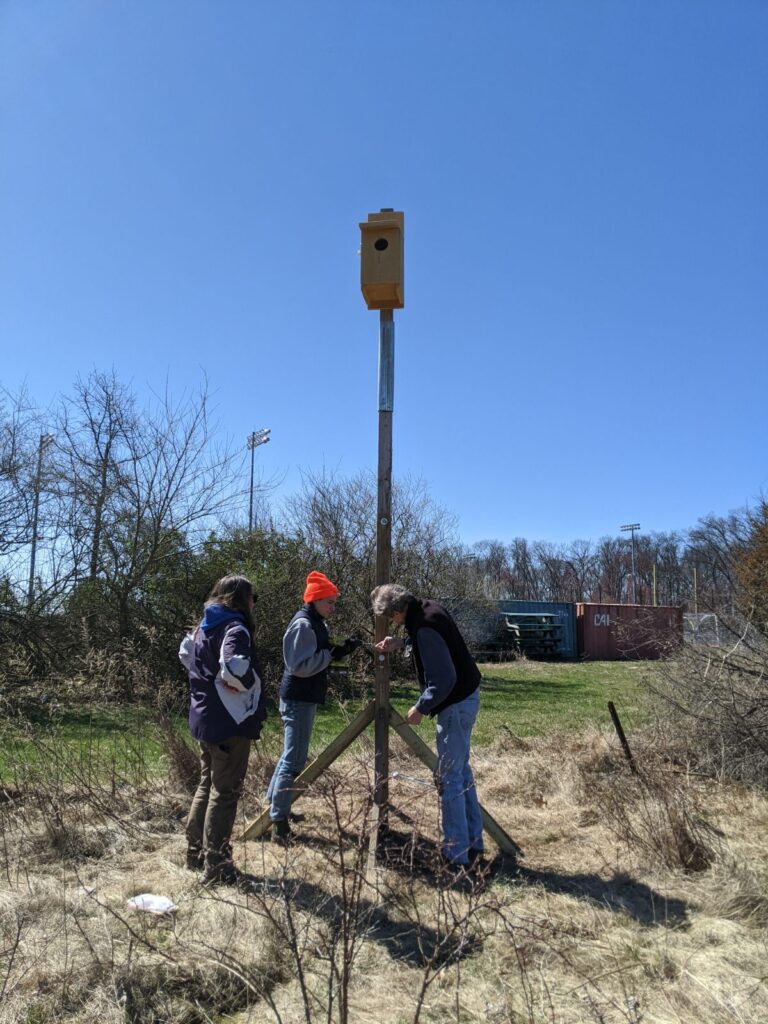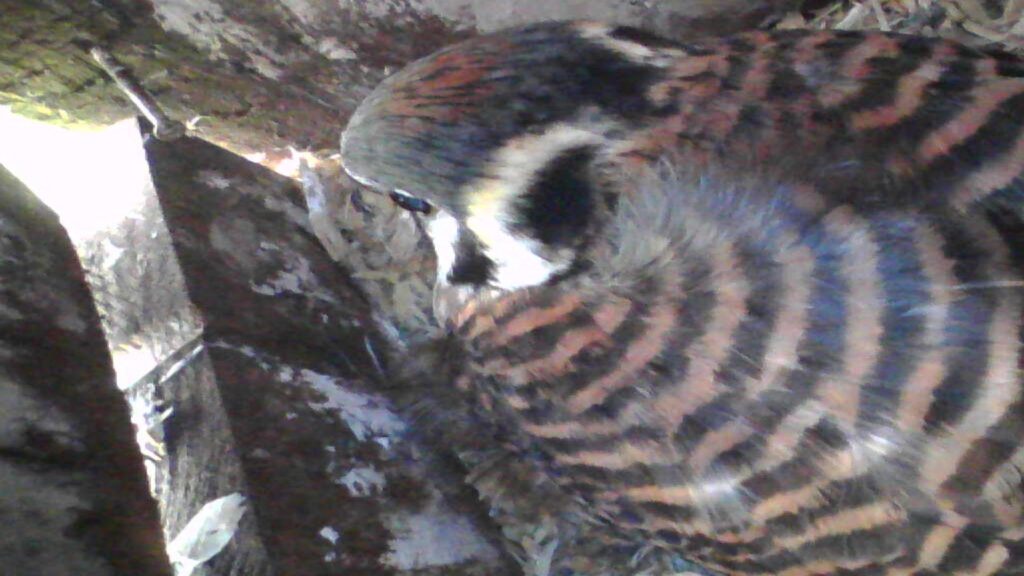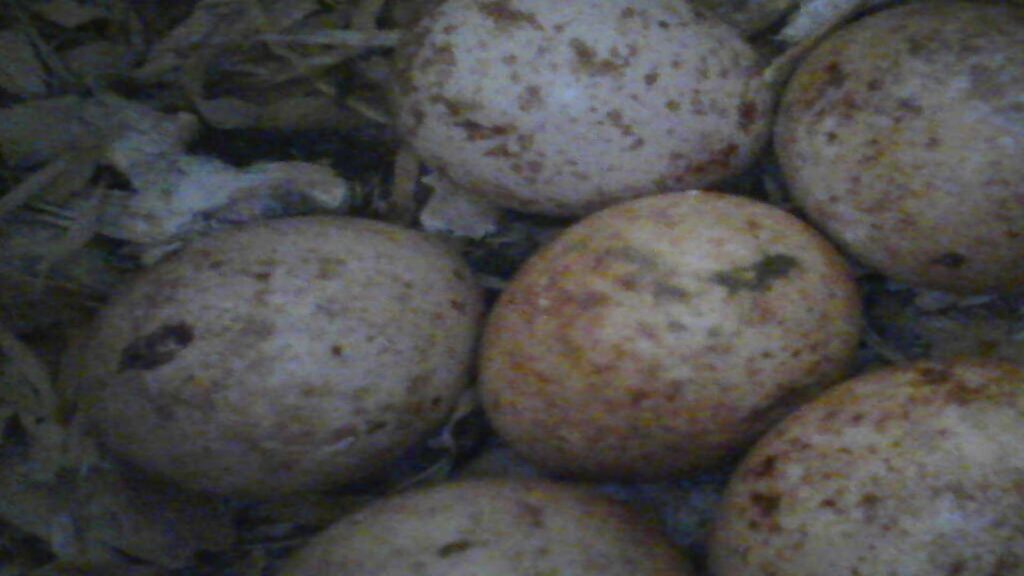April 2024 Kestrel Update
The fifth year of our kestrel nesting box project has begun! In early April, FoHVOS staff and volunteers prepared for the 2024 season by cleaning out old boxes and constructing new ones, pictured here.
The American Kestrel is a threatened species in New Jersey due to habitat loss and degradation, coupled with the lack of suitable nesting sites (normally dead tree cavities). Luckily, kestrels readily use human-built nest boxes and we have an amazing network of nature preserves, partner organizations, and private landowners that preserve critical meadow habitat for breeding kestrels. Nest boxes are set up in big open fields where adults can hunt for grasshoppers and small rodents to feed a growing brood of hungry chicks. We are proud to have gone from only four occupied boxes in 2019, to 17 occupied boxes in 2023. We are hopeful in having an equally, if not more, successful year in 2024!

To monitor kestrel recovery in the Hopewell Valley, dedicated volunteers check boxes every two weeks and record nesting activity by peering into the box with a camera attached to a pole. So far, our volunteers have reported eight boxes with eggs, like this clutch of six at St. Michaels Preserve. Another five boxes had adults either brooding (sitting on eggs) inside the box (pictured) or hanging around outside the box. We expect they should be laying eggs soon!
If you have a large field or have seen kestrels around your property and are interested in supporting a breeding pair by setting up a box on your land, please reach out to Beth Craighead at bcraighead@fohvos.org.

Adult kestrel inside a nest box

Clutch of 5 eggs at St. Michael’s Preserve
